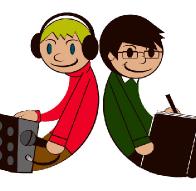Translation tasks at a public museum in Japan
At the museum where I work, there was a decision last year to try improving the quality of translation for our museum website, exhibition panels, and research communications. Research communication includes items such as the forms used to let outside researchers apply for access to our museum collections.
The forms were originally written in Japanese by administrators with no special training in either the subject area or in simple, non-bureaucratic language. Even Japanese find the forms written in Japanese difficult to understand. However, we have had some excellent new translations, and through editing the translations, I am hoping to encourage the museum to invest more in editing its own first-language communications. We need to encourage a general culture of clear communication within the institution, as a foundation for clear communication in other languages.
In fact, our museum already has had such an intention, since its foundation, but under the Japanese system of government funding for research institutions, our administration staff are selected by the relevant Ministry, not by the museum. We have had many good adminstrators, and they work very hard, but the museum has had little opportunity to develop its own system of administration, for the specific purposes of the museum. This is a general problem throughout Japan, for research organizations, and is well known and widely discussed. But Japan is a large ship and cannot change course quickly!
I am hoping that through the effort to translate, at least some small changes can be started at ground level.


I secondAbdur Rehman Cheema's opinion on Museums and I volunteer myself for translating into Esperanto.
Cheers!
Apart from English, our museum has started to provide information about the exhibitions in Chinese and Korean, because we have many visitors from such neighbouring countries. Our founding director, in the 1970s, hoped that Esperanto would become popular, and did not want to use English much. But Esperanto has never really become popular, internationally, and the younger generation of Japanese researchers is more comfortable with English -- and other languages -- than previous generations.
The place for Urdu and other languages of far countries will be in our website. It would be good if we could translate a short paragraph describing the museum, and translate that into every language in the world!
I still do not have an introduction for the Research Cooperative translated into Urdu. Can you help me with that? [Sorry - I am using the classic bait-and-switch tactic of salesmen the world over!]
See: http://researchcooperative.org/notes/Introduction_%28English%29
P.
This is a great idea, Peter. In a way,Museums are collective heritage of all human beings and access to a Museum means opening up a another door of learning.I volunteer myself for translating some of the forms in Urdu language ifopportunity arises at some stage.